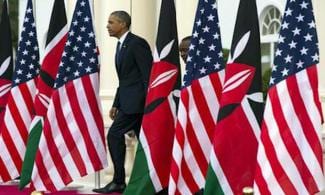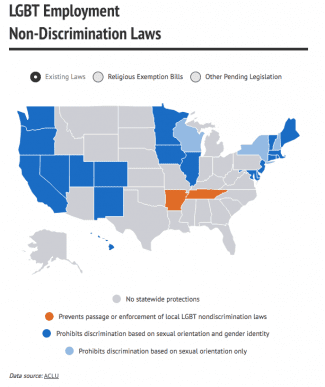Do you feel the United States should mix foreign policy and foreign aid with LGBT matters? The U.S. has come under fire in the past for most likely pushing their "western ideals" onto other nations. Some say it is wrong while others are saying, if you want our aid, you need to do better. The latter just won out legally.
Rights advocates on Thursday praised a new U.S. government rule barring its foreign aid contractors from discriminating against lesbian, gay, bisexual, transgender and intersex persons, as violence against the community continues globally.
The new rule by the U.S. Agency for International Development (USAID), the world's largest government aid agency, requires that organizations adhere to its standards of inclusiveness in the way they carry out services it funds.
U.S. groups advocating for lesbian, gay, bisexual and transgender (LGBT) rights lauded the move which affects more than $20 billion in aid programs in over 100 countries.
"We're very pleased with the rule and with the effort," said Mark Bromley, chair of the Council for Global Equality, a Washington D.C.-based group that promotes LGBT rights in U.S. foreign policy.
"This will make a difference – there are some U.S. implementers, particularly sub-contractors, in countries that are very hostile to LGBT individuals who have clearly discriminatory positions," he told the Thomson Reuters Foundation.
Discrimination against LGBT people has faced increased scrutiny globally in recent years.
The United States cut aid to Uganda in 2014 in response to a Ugandan law that imposed harsh penalties on homosexuality. – in.reuters.com
Do you think this is wise for the U.S. to tie it's aid with LGBT rights? I don't think we will have much argument here. But what if a nation's anti-LGBT stance limited the aid they would receive and that aid was a necessity? Shouldn't we look at helping human beings in need before we have a morality check? Or do we dangle a carrot in front of someone trying to make them change their ways before they receive aid? Do we have to weigh out the type of crisis first?
"I walked into a very backward environment in 2009," said Susan Rice, President Barack Obama's national security adviser and former U.N. ambassador. In an Associated Press interview, Rice said both the U.N. and U.S. had avoided taking on the issue.
She argued that despite a cascade of pressing global crises, the White House had tried to "deal with the urgent and deal with the important, and even if the important is, some might say, optional, it's important." – nbcnews.com
"What we've seen in the last eight years has been 99 percent great and 1 percent horrible backlash," said Jay Michaelson, an American author and LGBTQ activist who's written extensively on the subject.
Rice said the key was to tailor efforts to each country's circumstances, limiting advocacy to behind-the-scenes meetings when a public push might cause more harm.
"What we don't want to do to the extent we can avoid it is expose individuals who aren't wanting to be exposed and to put individuals at risk," Rice said. – nbcnews.com
NBC News actually presents an lengthy article on the subject of marrying foreign policy with LGBT rights. Head over to nbcnews.com where they elaborate on the countries in question, the history of bundling human / LGBT rights in with foreign policy, and what Hillary Clinton's role has been in supporting and working with Obama in this type of diplomacy.
Many may cheer this decree, but others are saying, what about here in the United States? What about the fact, to use a sad and overused phrase, "you can get married on Saturday and fired on Monday." It's not easy being Gay in the Gray states below. If Obama can make it a ruling that foreign contractors cannot discriminate based on sexuality, why can't he do it at home?
Your thoughts?
h/t: nbcnews.com




I think the major stumbling
I think the major stumbling block to gay and transgender rights in the US are the self appointed keepers of everyone else's morality, conservatives republican Christians, mixed with ignorance.